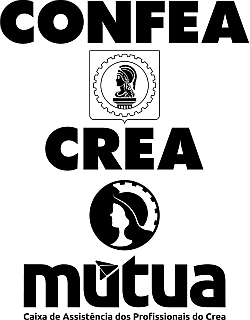Projeto ponto de partida: o ensino de projetos de rodovias através de uma abordagem lúdico-real-didática
DOI:
https://doi.org/10.14295/transportes.v25i3.1327Keywords:
Highway, Project, Educational Games, Key Performance Indicators, AHP (Analytic Hierarchy Process).Abstract
The traditional teaching, based exclusively in expository lectures, transforms students in mere spectators of the teaching-learning process. Didactic and ludic activities are usual in children’s education, however still rare in higher education. This paper proposes a real didactic and ludic approach for the Highways course at the Federal University of Rio Grande do Sul – UFRGS –, named Starting Point Project. It also treats method, content, stages and evaluation aspects of the Project under the perspective of pedagogical propsal in engineering education.
Downloads
References
Belhot, R. V.; Figueiredo, R. S. e Malavé, C. (2001) O Uso da Simulação no Ensino de Engenharia. Anais do XXIX Congresso Brasileiro de Ensino de Engenharia. Porto Alegre.
Bloom, B. S. (1956) Taxonomy of educational objectives: The classification of educational goals. Handbook 1, cognitive domain. New York; Toronto: Longmans, Green. 207 p.
García, D. S. P. e Albano, J. F. (2004) Um relato sobre o ensino de estradas na UFRGS. Anais da IV Semana de Engenharia de Produção e Transportes. Porto Alegre : FEEng.
García. D. S. P.; Wandscheer. M. A.; Santos. F. F. F.; Fraga. P. G. R.; Teixeira. F. G.; d'Azevedo. Z. S. e Di Rado. G. R. (2014) Diretrizes para o desenvolvimento de um sistema avançado para estudos e projetos viários: o conceito BIM no projeto de obras de infraestrutura. PANAM 2014. Santander. Espanha.
Garris, R.; Ahlers, R. e Driskell, J. E. (2002) Games, Motivation, and Learning: A Research and Practice Model. Simulation Gam-ing, v. 33, n. 4, p. 441-467. DOI: 10.1177/1046878102238607
González, L. A. S.; Morsch, I. B. e Masuero J. R. (2005) Didactic Games in Engineering Teaching - Case: Spaghetti Bridges De-sign and Building Contest. 18th International Congress of Mechanical Engineering. Ouro Preto.
Goulart, I. B. (2004) Psicologia da Educação: fundamentos teóricos, aplicações à prática pedagógica. 12 ed. Petrópolis: Vozes. 200 p.
Keller, J. M. (1983) Motivational Design of Instruction. In: Reigeluth, C. M. Instructional Design Theories and Models. An Overview of their Current Status. New Jersey: Lawrence Earlbaum Associates Hillsdale.
Keller, J. M. (2009) Motivational Design for Learning and Performance: The ARCS Model Approach. Springer. DOI: 10.1007/978-1-4419-1250-3
Kirkpatrick, D. L. (1994) Evaluating Training Programs - The Four Levels. Berrett-Koehler Publishers, Inc..
Kirkpatrick, D. L. e J. D. (2007) Implementing the Four Levels. Berrett-Koehler Publ., Inc., San Francisco, CA.
Krueger, R. A. e Casey, M. A. (2014) Focus Groups: A Practical Guide for Applied Research. SAGE Publications.
Macedo, L. (2002) Ensaios construtivistas. 5 ed. São Paulo: Casa do Psicólogo. 170 p.
Moretto, V. P. (2006) Construtivismo: a produção do conhecimento em aula. 4 ed. Rio de Janeiro. DP&A. 128p.
Morgan D. L. (1996) Focus group. Annual Review of Sociology, v. 22, p. 129-152.
Ozelkan E. e Galambosi, A. (2007) Lampshade game for teaching lean manufacturing. American Society for Engineering Educa-tion. Electronic Proceedings.
Prensky, M. (2001) Digital game-based learning. New York: McGraw-Hill.
Sacks, R.; Esquenazi, A. e Goldin, M. (2007) Leapcon: Simulation of lean construction of high-rise apartment buildings. Journal of Construction engineering and management. DOI: 10.1061/(ASCE)0733-9364(2007)133:7(529)
Savi, R. e Ulbricht, V. R. (2008) Jogos Digitais Educacionais: Benefícios e Desafios. RENOTE - Revista Novas Tecnologias na Edu-cação, v. 6, p. 1-10.
Schoemaker, P. J. H. (1995) Scenario Planning: a tool for strategic thinking. Sloan Management Review/Winter, v. 36, n. 2, p. 25-40.
Walasek, T.A.; Kucharczyk Z. e D.Morawska-Walasek (2011) Assuring quality of an e-learning project through the PDCA ap-proach. Archives of Materials Science and Engineering, v. 48, n. 1, p. 56–61.
Takatalo, J.; Häkkinen, J.; Kaistinen, J. e Nyman, G. (2010) Presence, Involvement, and Flow in Digital Games. In: Bernhaupt, R. Evaluating User Experience in Games: Concepts and Methods. Springer, p, 23-46.
Van der Heijden, K. (1996) Cenários, a arte da conversação estratégica. Porto Alegre: Bookman.
Downloads
Published
How to Cite
Issue
Section
License
Authors who submit papers for publication by TRANSPORTES agree to the following terms:
- The authors retain the copyright and grant Transportes the right of first publication of the manuscript, without any financial charge, and waive any other remuneration for its publication by ANPET.
- Upon publication by Transportes, the manuscript is automatically licensed under the Creative Commons License CC BY 4.0 license. This license permits the work to be shared with proper attribution to the authors and its original publication in this journal.
- Authors are authorized to enter into additional separate contracts for the non-exclusive distribution of the version of the manuscript published in this journal (e.g., publishing in an institutional repository or as a book chapter), with recognition of the initial publication in this journal, provided that such a contract does not imply an endorsement of the content of the manuscript or the new medium by ANPET.
- Authors are permitted and encouraged to publish and distribute their work online (e.g., in institutional repositories or on their personal websites) after the editorial process is complete. As Transportes provides open access to all published issues, authors are encouraged to use links to the DOI of their article in these cases.
- Authors confirm they have obtained all required employer permissions for the publication and CC BY 4.0 licensing of the manuscript, particularly if the employer holds any claim to the manuscript's copyright. Authors assume all responsibility for employer-related copyright issues, releasing ANPET and Transportes from any related liability.
- Authors assume full responsibility for the content of the manuscript, including the necessary and appropriate authorizations for the disclosure of collected data and obtained results, releasing ANPET and Transportes from any responsibility in this regard.
Last update: 11/27/2025











